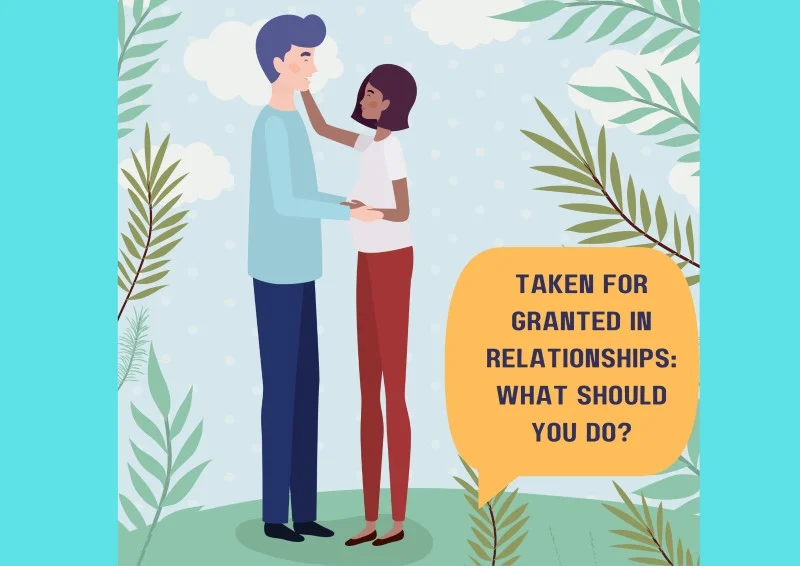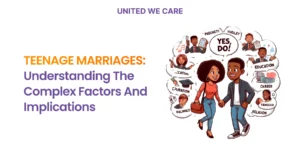Introduction
As humans, we crave to be seen and heard. To be acknowledged and reciprocated. To be received with warmth. When these needs are not met in a relationship, we can feel taken for granted.
Being taken for granted can be a very emotionally overwhelming experience. We care for the person in our relationship and wish to be valued by them. When they don’t appreciate us and are dismissive of our efforts, it can make us feel lonely and even resent them.
We may want to continue working on the relationship and make it better, but the other person might not reciprocate our efforts. This can be especially heartbreaking and leaves us with some tough decisions to make.
Do you feel taken for granted in your relationships? Let’s dig deeper into the how and what next.
What does “taken for granted” in relationships mean
Think of the relationship you feel granted in. Now, dive into a story with us to compare your feelings.
You’re known for always being there for the people in your life. However, you’ve often noticed this pattern that at the start of your relationships, there’s a mutual exchange of effort, and everyone involved is equally invested in the relationship.
But over time, this balance starts to fade. You are the one who always strikes a conversation first or makes plans. You’re holding up your end of the bargain to make the relationship work, but they’ve stopped putting in the effort.
You start wondering if you’re being too needy or doing something wrong. When you express your feelings and concerns to them, they become defensive and dismissive. You keep overextending yourself in the hopes that things will go back to normal. Ultimately, you feel sad and clueless about how to handle this situation.
Does this story sound familiar? Well, then, you might be taken for granted in your relationship.
At its core, being taken for granted is a feeling of being undervalued and overlooked. Your efforts are unacknowledged and unreciprocated.[1] This feeling can surface in all kinds of relationships, be it friends, family, partners, or professionals.
How do you know if you are taken for granted in relationships?
A relationship in which you feel taken for granted can be quite one-sided. Some signs to look out for in your relationship are:

- The amount of effort from both sides is imbalanced: You are clearly giving more time, support, and affection to them than they are returning to you.
- You are not acknowledged for your efforts: Not only that, but they regularly dismiss your feelings and needs.
- They frequently cross the boundaries you set: They do not show respect for your boundaries and remorse for crossing them.
- There is a lack of reciprocity: You are always the one who initiates anything, whether it’s an activity, intimacy, communication, or resolving a flight. You may not mind initiating it, but you’re not so much as reciprocated for it.
- You are not the priority: They may cancel plans or not make time for you frequently, making you feel you’re replaceable.
- Your needs are unmet: Even though you express your needs, they’re consistently invalidated and unmet. You start feeling lonely because of this.
- They don’t consult you in making important decisions: They don’t consider your opinions and feelings while making decisions that affect your relationship.
- You see patterns of manipulation: You feel manipulated into doing certain things, which benefits them at your expense.
- You feel stressed, anxious, and depressed: You are physically and mentally overwhelmed by being taken for granted.
What are the impacts if you are taken for granted in relationships?
You might find yourself in immense emotional and even physical distress if you’re being taken for granted consistently. Some ways in which your relationship dysfunction can manifest are:
- You feel emotionally isolated. They overlook your presence and efforts, which makes you feel lonely even when people surround you.
- You question your self-worth. Because you constantly feel unappreciated, your internal narrative has started sounding like “I am not good enough,” “nothing I do matters,” etc.
- You are exhausted. You give more than you get in your relationship, and you feel you don’t even get so much as an acknowledgment. The stress, anxiety, and depression from this situation can show up as headaches and eating and sleeping disturbances.
- You’ve started resenting them because they don’t value you. You’re frustrated about this situation, and on some level, you’ve started resenting yourself for not being able to put an end to it.
- You feel hopeless about the situation ever changing and fear being always unvalued.
- You’ve started overreacting and reading too much into situations because you always have to be on the lookout for being overlooked.
- You constantly overextend yourself in hopes of gaining approval and validation. Hence, you have a hard time setting boundaries and holding them up.
- You’ve decided to withdraw yourself from the situation by avoiding it, reducing your communication, or choosing not to engage in any way.
What should you do if you are taken for granted in relationships?
If you’re feeling taken for granted in your relationship, you need to address the emotional overwhelm to ensure your well-being. Here are some things you can do:
- Get some clarity within yourself: Reflect on specific moments or incidents that made you feel taken for granted. Not only will this help you in communicating your feelings, but also help you understand what your boundaries are and how you’d like to uphold them.
- Communicate with that clarity in a non-volatile way: Express your feelings and pinpoint what particular instances made you feel unvalued without blaming the other person. Using “I” statements can help. Give them a fair chance to express their perspective.[2]
Get specific about what you need from them. Do they need to acknowledge your effort more? Do they need to reciprocate your efforts by actively initiating making plans?
- Consider going to therapy: If you see a pattern of being taken for granted across most of your relationships, you might have a “people-pleasing” response to your attachment trauma. A therapist can help you with coping strategies to improve your self-worth and relationship dynamics.[3]
If your feeling is specific to a particular relationship, you can consider going for therapy together. The involvement of a therapist as a neutral third party can help you with fresher perspectives, mediation, and guidance.
- Evaluate your relationship: Is being taken for granted a temporary phase or a consistent pattern in your relationship? If it’s the former, you may continue putting in efforts collaboratively to work on the relationship. If it’s the latter and they are not reciprocating your efforts, be honest with yourself about whether you want to continue the relationship or not.
- Care for and empower yourself: Spend more time figuring out and engaging in activities that make you feel good about yourself. It could be your creative hobbies, movement and mindfulness, volunteer work, or even learning new skills. Actively connect with loved ones who do make you feel valued and aren’t afraid to express it.
Conclusion
It can be an emotionally exhausting experience to feel consistently taken for granted in a relationship. We might feel sad, depressed, and clueless about how to deal with this situation.
It is important to recognize the specific instances where you felt taken for granted so that you’re able to communicate it with clarity. If your concerns are received well and efforts are reciprocated, you may be able to create a healthy relationship. If not, you must decide whether this relationship is viable and serving you.
Seeking professional help, investing your time in practicing self-care, and being surrounded by people who value you can help.
References:
[1] “Take For Granted Meaning in Relationship,” Allo Health Care. [Online]. Available: https://www.allohealth.care/healthfeed/sex-education/take-for-granted-meaning-in-relationship. [Accessed: 25 Oct., 2023]
[2] Michelle Becker, “How to Communicate with Love Even When You’re Mad,” Greater Good Magazine: Science-Based Insights for a Meaningful Life. [Online]. Available: https://greatergood.berkeley.edu/article/item/how_to_communicate_with_love_even_when_youre_mad. [Accessed: 25 Oct., 2023]
[3] Kristine Tye, MA, LMFT, “How to Stop Anxiety from Destroying Relationships,” GoodTherapy. [Online]. Available: https://www.goodtherapy.org/blog/how-to-stop-anxiety-from-destroying-relationships-0622155. [Accessed: 25 Oct., 2023]










